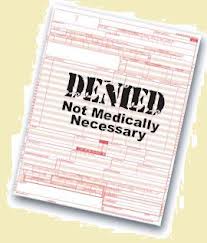Unfortunately, claim denials are simply unavoidable. Even the best practices have at least a 5% denial rate. So how do you reduce denials to the lowest possible percentage to keep your revenue cycle strong? The first step is understanding where and why denials happen in the medical billing world.
The Numbers: Denial Management
One of the secrets to denial management is to really understand the numbers. You’ll need to keep close tabs on your medical billing system and generate a frequent report that shows you the exact number of denials you’re experiencing. This is easier for those that utilize electronic payments, but there are solutions for manual entries as well. From your report, you need to look at:
- Total number of denied claims
- Volume and value of denials
- Percentage of denied claims
Just with those three numbers, you can gather a big picture look at your practice’s denial rate. The next step is to find out where those denials are happening…and why.
Where and Why
It’s easiest to break your denied claims down into categories so you can identify which areas you need to tackle first. These might be:
- Incorrect charge
- Missing patient data
- Referrals or pre-authorization missing
- Non-covered services
- Replication
- Medical necessity
- Credentials
As you start to notice one area is bottlenecking, take a closer look at your processes for that section and see where the roadblock is happening. It may be a training issue or a quick fix. Don’t be afraid to ask your team if they have questions or need clarification on how to process different types of claims. An open dialogue will allow you to address problems more efficiently.
Plus, with coding changes that will come alongside ICD-10 implementation, on-going training is an absolute must. Coding errors are a major factor in denial management, so it’s important that your entire medical billing department is up to speed on the changes to come.
Track Your Progress
This process doesn’t stop when one problem gets addressed–it needs to be tracked over time to ensure you are constantly monitoring and improving your denial management process. Your on-going efforts will help you keep tabs on denials throughout the year and can overall improve your bottom line.
For those who need an immediate fix for their denial management, working with an outside consultant can help kick the process into high gear. Typically the consulting firm will begin with a denial assessment and they will present a plan for implementation and prevention moving forward. With industry studies indicating that as much as 25-30% of claims are denied, you can’t afford to overlook a remedy for claim denials.

